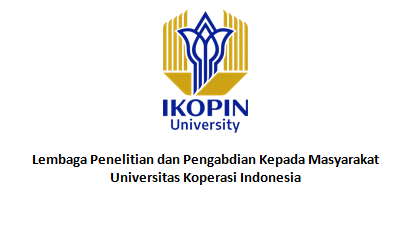Pelatihan Peningkatan Pemahaman Anggota Terhadap Organisasi Koperasi Sebagai Upaya Meningkatkan Partisipasi dan Pengembangan Usaha Koperasi di Primer Koperasi Kartika D09 Kota Yogyakarta
DOI:
https://doi.org/10.32670/ecoopsday.v5i2.4691Keywords:
Types of Cooperatives, Understanding of Cooperatives, Cooperative Principles, Member Participation, Benefits of CooperativesAbstract
This training was held starting with a request to the Institute for Research and Community Service (LPPM) of the Indonesian Cooperative University from the Primary Management of the Kartika D09 Cooperative, Yogyakarta City, to provide understanding to members and administrators regarding how members can better understand cooperatives, their rights and obligations as members, while for administrators to better understand cooperative governance so they are able to serve members effectively and efficiently. From this request, LPPM assigns lecturers who have competencies in the desired field to be trained. Due to technical obstacles related to the time and place of implementation, in order to continue to be carried out effectively and efficiently, the training uses online methods with the zoom meeting platform. The training was attended by members and administrators and the material was provided by an instructor who had received an official letter of assignment from LPPM. Cooperative management carried out by management and supervised by supervisors must refer to the implementation of cooperative principles. There are seven principles of cooperatives, namely membership is voluntary and open; management is carried out democratically; distribution of remaining business results is carried out fairly and in proportion to the amount of service of each member; limited compensation for capital; independence; cooperative education and cooperation between cooperatives. It is hoped that increasing understanding of cooperatives will increase member participation. Member participation consists in particular in utilizing cooperative services, which will increase income so that it is hoped that it can encourage the creation of greater residual business results which will then be allocated for the welfare of members as well. The welfare of members can be measured in units of economic benefit if members utilize cooperative services. There are benefits obtained when carrying out transactions, namely the existence of profitable price differences and welfare obtained from the distribution of remaining business results carried out by the cooperative when it obtains a surplus from its business activities. Measuring the benefits or welfare of members will be different for each type of cooperative.
Downloads
Published
How to Cite
Issue
Section
License
Copyright (c) 2024 Wndang Wahyuningsih

This work is licensed under a Creative Commons Attribution-NonCommercial-NoDerivatives 4.0 International License.


.png)



 NTER
NTER
